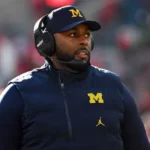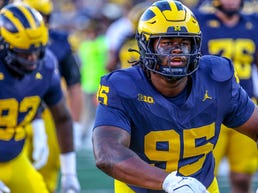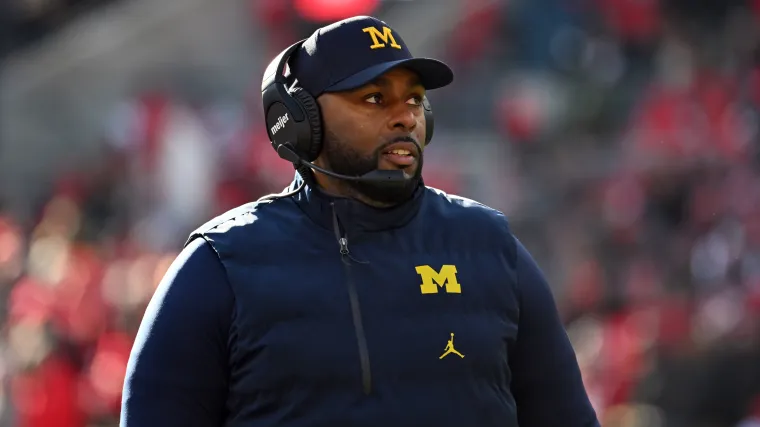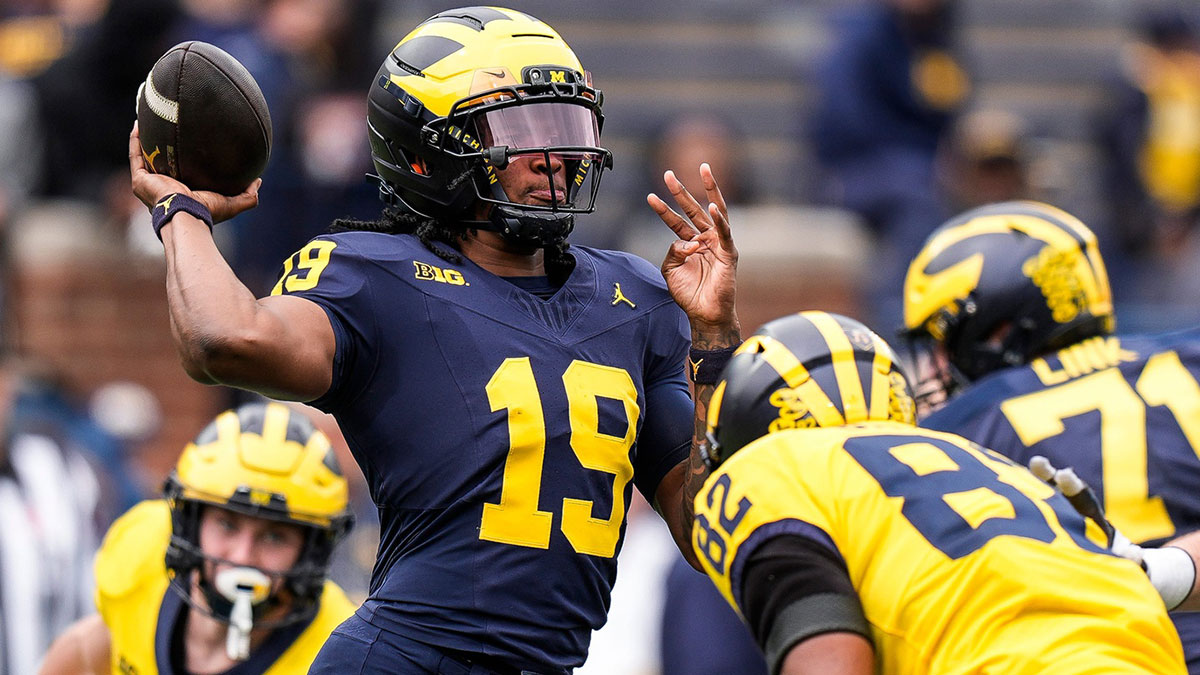
Connor Stalions Challenges TCU Coach’s Sign-Stealing Claims: What’s Really Behind the Controversy?
To save everybody’s time so we can move on from the same recycled story from Coach Dykes, I’ll provide some more details and we can wrap this up:
- TCU coach Sonny Dykes recently claimed his team changed signals to counter Michigan’s alleged sign-stealing in the 2022 Fiesta Bowl.
- Former Michigan analyst Connor Stalions refuted Dykes’ claims, arguing that changing signals is standard practice and didn’t impact the game’s outcome.
- Stalions attributed Michigan’s loss to turnovers and poor tackling, not TCU’s signal adjustments.
“We had some intel that (the sign stealing) was going on,” Dykes told On3 from Big 12 media days. “Look everybody does it to an extent, but we had some intel that it was kind of next level there.”Dykes’ solution? To say anyone “fooled” me is admitting that you have no idea how signal deciphering & protecting works. No team has ever “changed” signals — meaning they don’t recycle the same signal to have a different meaning because that would confuse the 18-year olds on the field more than it would confuse me. They simply create new signals. And if I see a new signal, I’m not guessing what it means. There were games where I relayed information 0% of the time, all the way through 99% of the time. No one is forcing you to signal. Rutgers & Minnesota huddled (didn’t signal). Nebraska didn’t signal until the 2nd quarter when they were down 14-0. Even we, Michigan, didn’t signal on offense.
Since people are so intrigued by signals…The entire Air Raid communication system is the offensive coordinator signaling to the QB, then the QB signaling to the Receivers. USC, TCU, etc. It’s all the same. They’re all the same signals too. And TCU kept everything from the coordinator to QB the same, but had dummy signals & some new signals from the QB to Receivers. But that didn’t matter because I’m watching the coach and seeing what they changed in real time. Similar to Ohio State “changing their signals.” They changed their route concepts & some run concepts — not their formations & pass protection signals, which is all I cared about.Of course, narratives will persist, regardless, especially since Stalions didn’t start going on the record until Netflix’s ‘Sign Stealer’ was released in August 2024. He’s since made a trio of podcast appearances and is becoming more and more of a social media presence.Stalions took to X (formerly Twitter) to rebut McMurphy’s story on Dykes, responding to the article post in great, great detail about why this account from the Horned Frogs coach is erroneous.
“We got some favorable matchups because of that and, yeah, there was some big plays in the game.If you don’t want teams to steal your signals, then don’t signal. Any team that signals on offense is trying to force the defense to signal so they can steal it. There’s really no other advantage unless you’re trying to prevent a sub, or it’s 2-minute. If that weren’t true, you’d see the entire NFL go up tempo to find advantages. But you don’t. And it’s still going on today in college with coach comms. Notice how teams still signal — it’s because they’re going up tempo.
“We changed some signs, we left some the same,” Dykes said. “We found out early enough (before the game) where we could change a lot of our signals and then we had some dummy signals and some things where we checked a dummy signal to a signal that we knew they knew.Brett McMurphy has just started his new job at On3 and felt like he had a bit of a juicy story, even if it’s one that’s already been told.No one who was a part of that Michigan football team had been able to fight back on the allegations publicly. But now, as he waits for the NCAA to levy its punishment for the advanced scouting scandal, Stalions isn’t letting this one go by idly.That is true — it wasn’t so much that TCU took great advantage of Michigan being in the wrong place throughout the game. The Wolverines struggled throughout the entire College Football Playoff semifinal with the fundamentals, and ultimately found themselves making mistake after mistake — from J.J. McCarthy’s two interceptions, to a fumble at the goal line, to running the Philly special on a fourth down. Then, when TCU had the ball, Michigan struggled to finish tackles or whiffed entirely. It wasn’t a case of catching the Wolverines off guard; it was a case of Michigan not being able to get out of its own way.The continuous attempt to correlate signals to any wins & losses at Michigan is funny. There were 7 games in my time at Michigan where I knew almost every signal the whole game: 2021 MSU, 2022 MSU, 2022 PSU, 2022 OSU, 2022 TCU, 2021 Georgia, and 2021 Wisconsin. We lost 3 of those games because we didn’t tackle well, and Georgia was historically good. We won the four other games because we dominated the line of scrimmage & tackled well. Blocking, ball security, tackling, run fits & coverage tools. That’s football. This is not rocket science.To be “tipped off” that your next opponent is good at stealing signals is like saying you were tipped off that you had an upcoming game.We lost because we turned the ball over & had a poor game tackling. And TCU played well. Congratulations. The same way we won the Natty (when I was not with the program) because we blocked well, tackled well, and took care of the rock. Welcome to the game of football.
Even still, the game came down to the maize and blue’s final possession.All the way back in October 2023, a TCU contingent told ESPN that the Horned Frogs were aware of Michigan football’s Connor Stalions and his sign-stealing ways, and that they had devised a clever plan which made the Wolverines‘ machinations backfire on them. Now, years removed, TCU head coach Sonny Dykes is adding gasoline to the flames by telling McMurphy and On3 at Big 12 media days about the countermeasures that the Horned Frogs took against the Wolverines in that 2022 Fiesta Bowl.
Alright, let’s dive into this tangled web of football intrigue that has resurfaced like a boomerang nobody asked for. Remember the 2022 Fiesta Bowl? TCU’s coach Sonny Dykes stirred the pot recently, claiming his squad switched up their signals to dodge Michigan’s alleged sign-stealing scheme. Sounds spicy, right? But hold on—Connor Stalions, the former Michigan analyst who’s been waiting in the wings, isn’t buying it one bit. He argues that signal changes are just par for the course, the usual chess moves in a high-stakes game, and insists that Michigan’s stumbling blocks—turnovers, missed tackles—were the real culprits behind the loss. This back-and-forth isn’t just about X’s and O’s; it’s a clash of narratives, with old wounds reopening amid fresh commentary, and Stalions now stepping up publicly as the NCAA’s future verdict looms. If you thought this was settled, think again—because college football’s shadow games are anything but over. LEARN MORE





















Post Comment